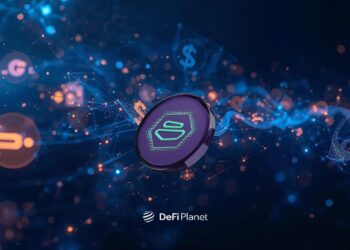The rise of Proof-of-Stake (PoS) as an alternative to Proof-of-Work (PoW) introduced a new role in blockchain security—the validator. Unlike PoW miners, who compete to solve cryptographic puzzles, validators in PoS-based networks secure the blockchain by staking tokens and validating transactions.
Just like for miners in PoW systems, becoming a validator is not a simple plug-and-play endeavour—it requires meeting specific technical, economic, and operational demands.
This article breaks down the responsibilities of validators, the requirements to participate in Ethereum and Solana, and the rewards and penalties that come with the role.
General Responsibilities of a Validator
Ethereum and Solana are the two leading PoS-based blockchains, and both of them take different approaches to how validators carry out their duties. Ethereum prioritizes security and decentralization with its PoS model, while Solana optimizes for speed and efficiency through a hybrid approach that combines Proof-of-Stake and Proof-of-History.
Before discussing the specifics, let’s examine what validators do and why their role is indispensable in blockchain ecosystems.
1. Running and Maintaining Validator Nodes
Validators must ensure their nodes operate continuously and without interruptions. This involves maintaining reliable hardware, software, and internet connectivity.
To help sustain the overall health and performance of the blockchain, validators are required to keep their nodes updated with the latest software and protocol upgrades, which are critical for maintaining compatibility and security within the network. They must also regularly monitor their node performance to detect and promptly address any technical issues.
2. Validating and Proposing Blocks
Validators play a crucial role in maintaining the integrity of the blockchain by verifying transactions and ensuring the correctness of blocks proposed by others, a process that is essential for network consensus. They ensure that the information within a block is correct and conforms to the blockchain’s rules and standards. This way, the blockchain can maintain a record free of invalid or fraudulent transactions.
Validators are also responsible for proposing new blocks to be added to the blockchain. When selected, they prepare and submit blocks containing validated transactions.
3. Participating in Governance
Validators influence network decisions by voting on protocol upgrades and governance proposals. Their participation helps shape the blockchain’s future and uphold decentralization.
RELATED: Proof of Stake Under Pressure: Why Validator Consolidation Is Risking Blockchain’s Future
Technical Requirements for a Validator on Ethereum and Solana
For both networks, there are hardware, software, and other specifications that an interested party must have and maintain to be a validator. Notably, these requirements are in addition to staking a specific amount of the native tokens of both blockchain networks.
Ethereum
- Hardware Requirements
- CPU: A multi-core processor is essential to run validator software effectively. Examples include dual-core or quad-core processors with a clock speed of at least 2 GHz. For advanced clients like Teku, processors with hyper-threading technology and higher clock speeds (e.g., 2.5 GHz or faster) are recommended.
- RAM: A minimum of 16 GB of RAM is required to handle the computational workload efficiently.
- Storage: A 1 TB SSD is necessary to store blockchain data and validator logs. Solid-state drives ensure faster read/write speeds, which are critical for data-intensive tasks.
- Internet Connection: A stable and uninterrupted connection with a minimum speed of 10 Mbps is mandatory. Validators should prefer wired Ethernet for greater reliability and lower latency.
- Software Requirements
- Validator client software like Prysm, Lighthouse, or Teku.
Solana
Operating a validator on the Solana network demands higher technical specifications due to the network’s high throughput and low-latency architecture.
- Hardware Recommendations
- CPU: A high-performance processor with 12 or more cores/threads and a clock speed of 2.8 GHz or faster. Advanced features like AVX2, AVX512f, and SHA-NI support are advantageous. Popular options include the AMD Zen3 series.
- RAM: A minimum of 128 GB is required, with support for motherboards that can accommodate 256 GB for scalability.
- Storage:
- Accounts Disk: A 500 GB PCIe Gen3 x4 NVMe SSD or better, with high TBW (terabytes written) capability.
- Ledger Disk: A separate 1 TB NVMe SSD with high TBW to store transaction history.
- Optional OS Disk: A 500 GB SATA SSD is sufficient, but better performance can be achieved with a separate disk for the OS.
- GPU: While GPUs are not currently necessary, validators should consider motherboards and power supplies that can support future upgrades.
- Internet Requirements: A high-speed, reliable connection with upload speeds of 300 Mbps or more is essential to handle Solana’s fast-paced transaction validation.
- Software Requirements
- Solana’s open-source validator software.
Staking and Token Requirements
Ethereum
- Minimum Stake: 32 ETH (~$51,000 as of January 2025).
- Delegation: Staking pools allow participants with less than 32 ETH to contribute.
Solana
- Minimum Stake: No fixed minimum, but validators need sufficient SOL to cover operational costs.
- Delegation: SOL holders can delegate tokens to validators to increase voting power.
Rewards and Penalties
Validators are essential to securing and maintaining blockchain networks like Ethereum and Solana. They earn rewards for their contributions but face penalties for misconduct or inactivity.
Ethereum Validator Rewards
- Consensus Layer Rewards: Earned for block proposals, validations, and other activities that enhance security and consensus. Rewards are added to the validator’s balance and transferred when exceeding 32 ETH. Whistleblowers exposing dishonest activity also receive rewards.
- Execution Layer Rewards: Validators earn priority fees (for swift transaction inclusion) and MEV (Maximal Extractable Value) profits by optimizing block content.
Solana Validator Rewards
- Inflationary Rewards: Stakers earn SOL from new token issuance, distributed based on stake-weight. Solana’s inflation, currently ~5.237% (June 2024), gradually decreases to a long-term target of 1.5%.
- MEV Rewards (via Jito): Validators using the Jito client share in MEV opportunities, offering stakers an additional 10-15% in rewards. MEV Searchers bid for transaction inclusion, and the highest bidder rewards the slot leader and stakers.
- Block Rewards: Validators receive base and priority fees for proposing blocks. Upcoming changes (SIMD-0096) will direct 100% of priority fees to slot leaders, enhancing validator incentives.
Ethereum Validator Penalties
- Minor Penalties: Issued for missed attestations or late validations.
- Inactivity Leak: Inactive validators lose their stake gradually during prolonged network downtime.
- Slashing: Malicious actions like double-signing or altering blockchain history get punished with temporary (sometimes permanent) deduction of staked ETH
- Expulsion: Validators can be kicked out of the network if they have been identified to have malicious intent and be punished for it multiple times.
Solana Validator Penalties
- Validators must maintain high uptime and network sync. Downtime or missed blocks lead to missed rewards or slashing.
Security Risks and Challenges for Validators
Operating as a validator on blockchain networks like Solana and Ethereum involves significant responsibilities, along with inherent risks and challenges. These risks range from economic and operational hurdles to network security concerns.
1. Operational Costs and Complexity
Validators often face high operational costs due to the need for advanced hardware and reliable high-speed internet. The technical complexity of setting up and maintaining a validator node can be daunting, requiring specialized knowledge and constant monitoring. In Solana’s case, frequent network upgrades and the necessity to handle significant transaction throughput demand robust infrastructure, further increasing the operational burden.
2. Economic Risk
Becoming a validator entails staking substantial amounts of tokens (e.g., SOL or ETH), which ties up capital that could be at risk. For Ethereum validators, penalties such as slashing for malicious behaviour or prolonged inactivity can result in the loss of staked ETH. Similarly, Solana validators may lose delegations or rewards if they fail to meet performance expectations. These financial risks make validator operations a high-stakes endeavour, requiring careful planning and consistent performance to avoid losses.
3. Network Security Threat
Security remains one of the most pressing concerns for validators. They must safeguard their systems against cyberattacks, including Distributed Denial of Service (DDoS) attacks, which can disrupt node functionality. Ensuring private key security is paramount, as key breaches can compromise the validator’s operations and potentially the network’s integrity. Regular backups, updates, and implementing best practices for system security are essential for mitigating these risks.
4. Network Volatility and Performance Issues
Validators also contend with network volatility, which can affect rewards and stability. Fluctuations in token value, network traffic, or congestion during high-demand periods, such as major NFT mints, can impact performance. For Solana validators, addressing challenges like network outages requires constant adaptation to upgrades such as QUIC, Stake Weighted QoS, and localized fee markets designed to handle high-traffic periods.
Disclaimer: This piece is intended solely for informational purposes and should not be considered trading or investment advice. Nothing herein should be construed as financial, legal, or tax advice. Trading or investing in cryptocurrencies carries a considerable risk of financial loss. Always conduct due diligence.
If you would like to read more articles like this, visit DeFi Planet and follow us on Twitter, LinkedIn, Facebook, Instagram, and CoinMarketCap Community.
Take control of your crypto portfolio with MARKETS PRO, DeFi Planet’s suite of analytics tools.”





















